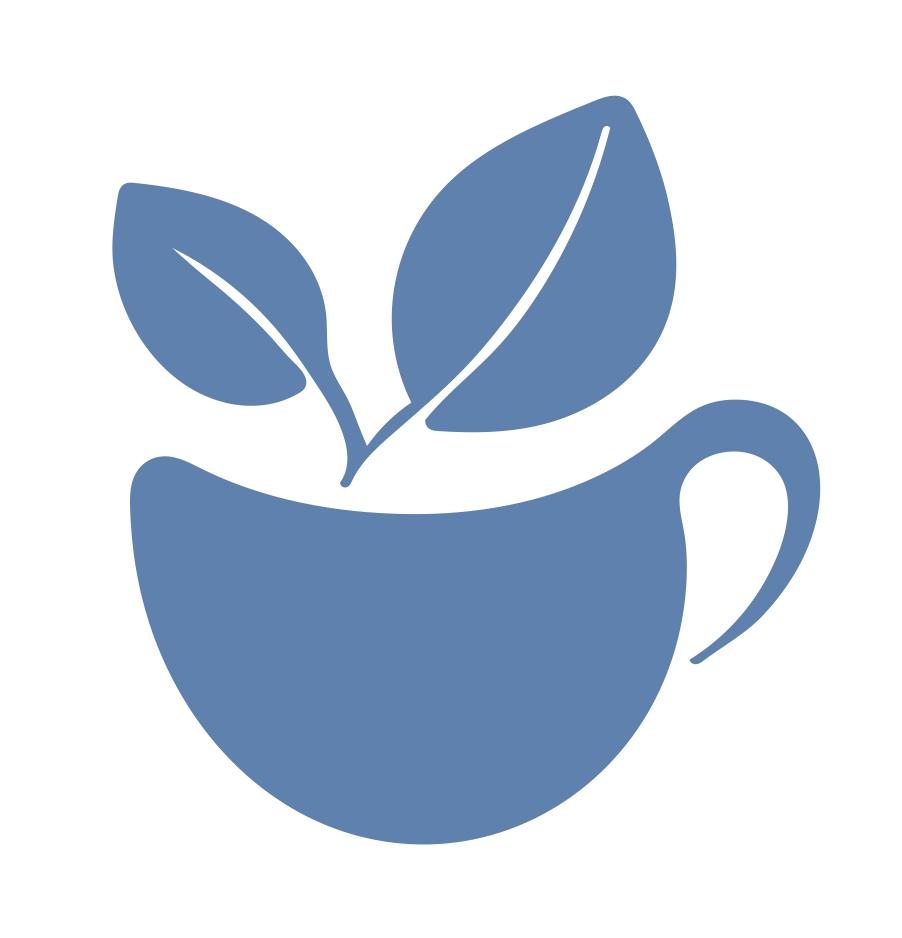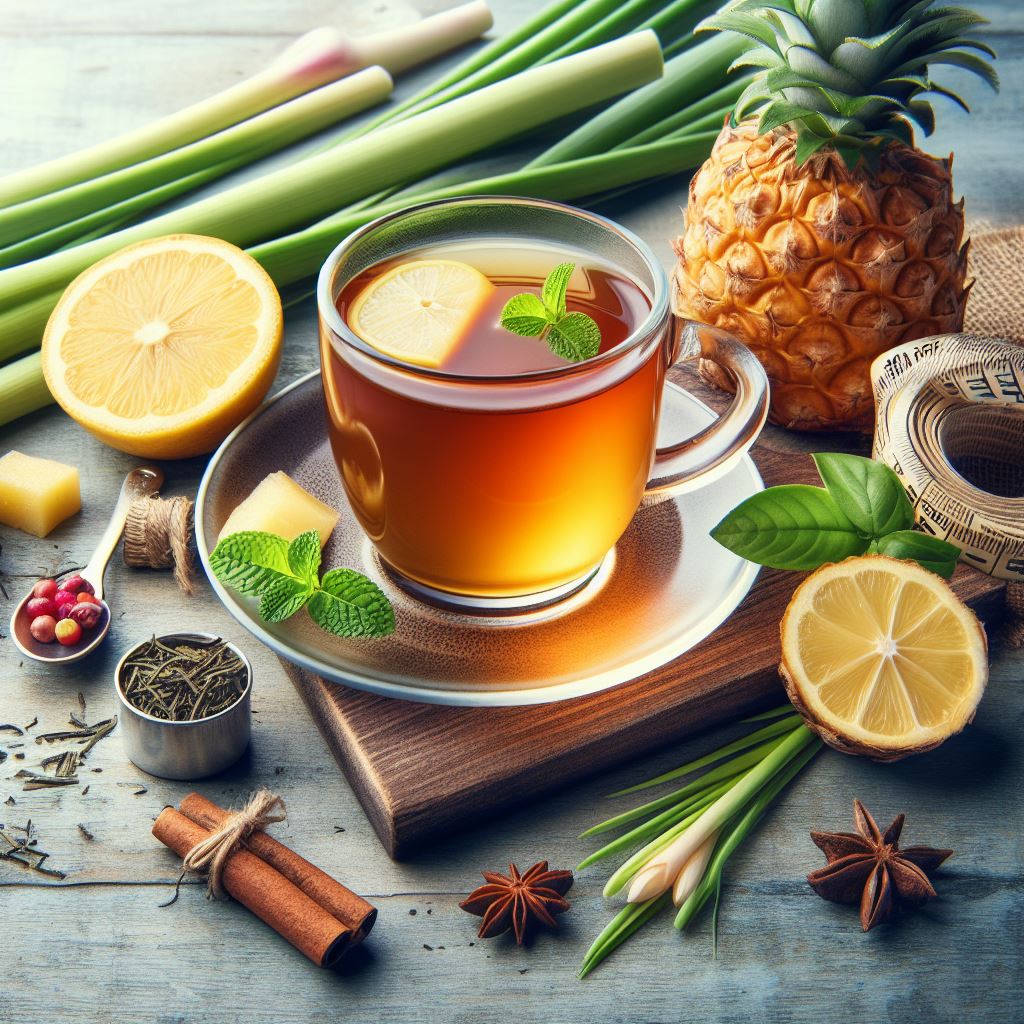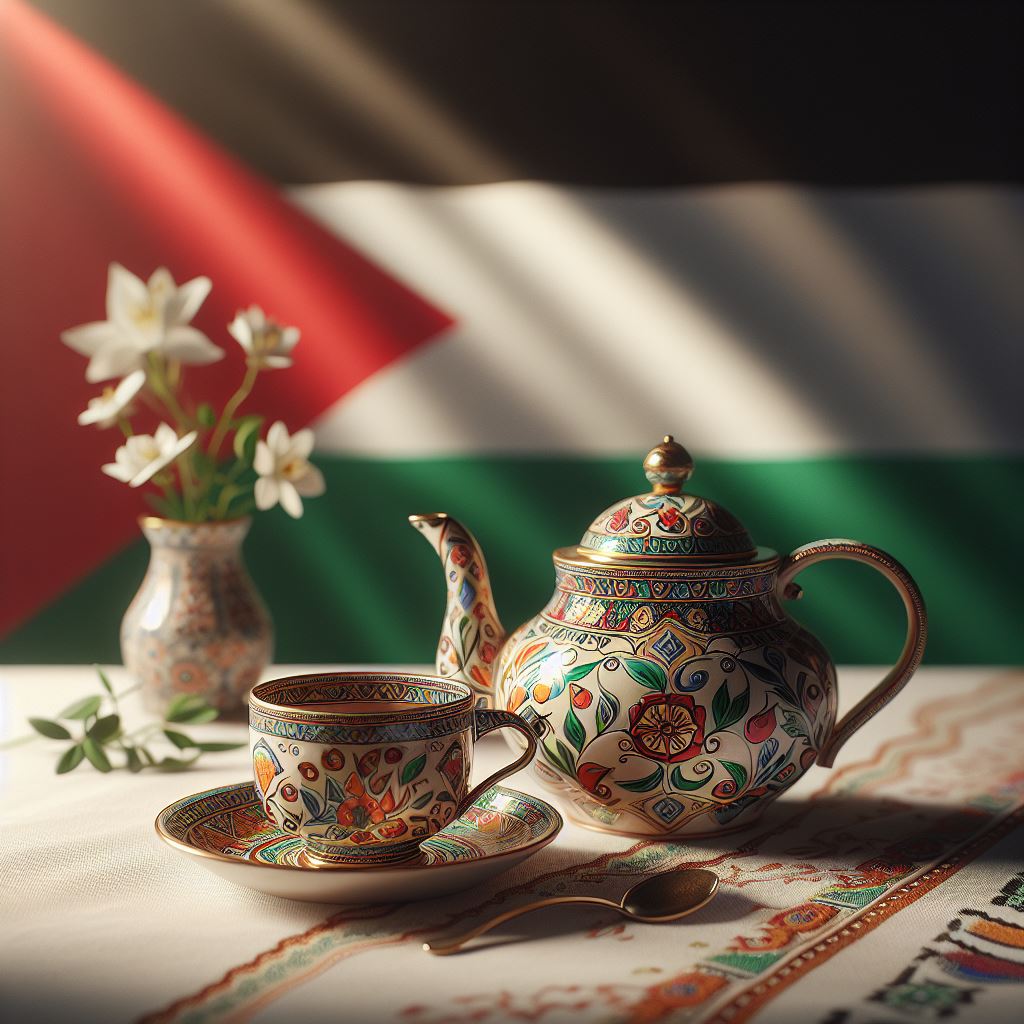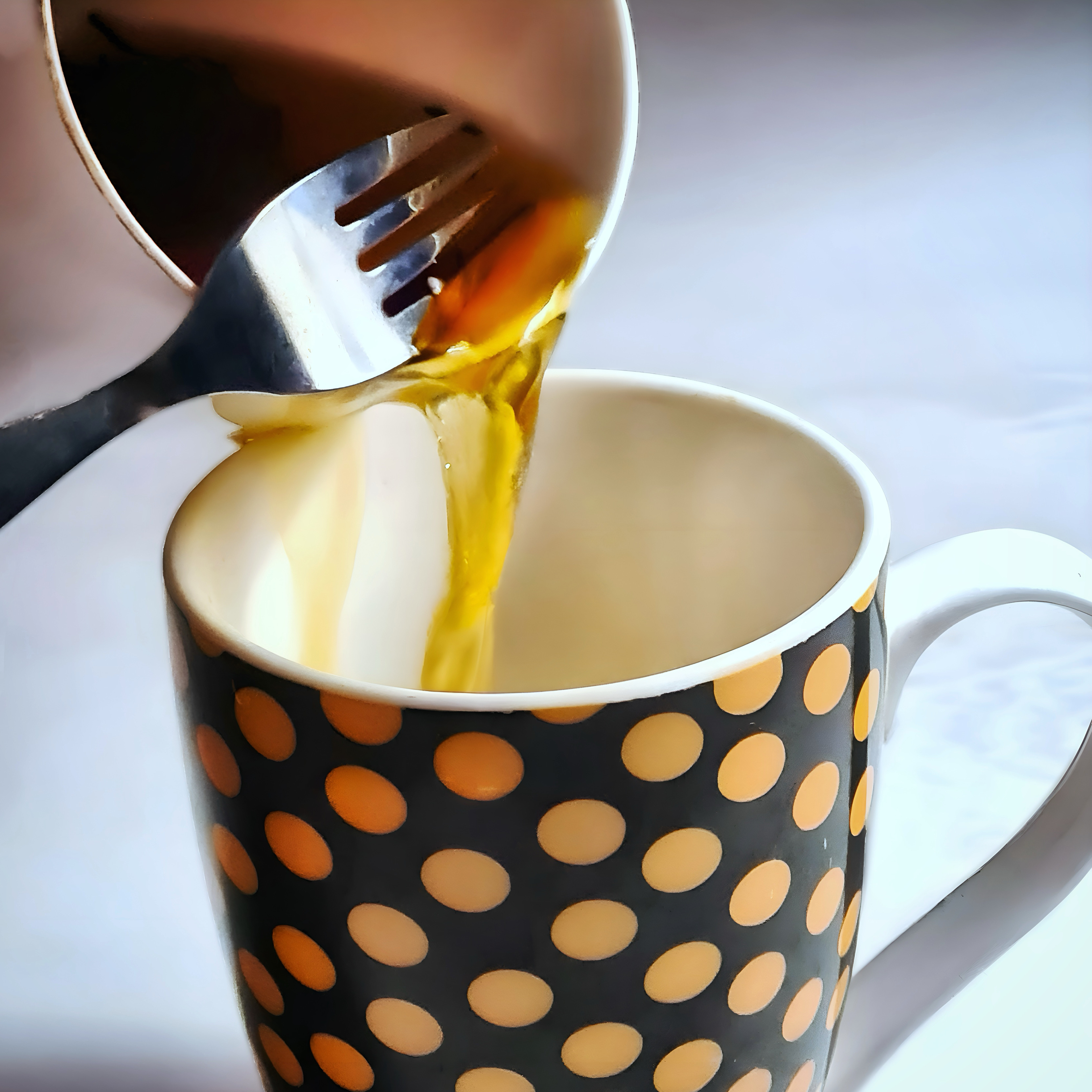World Bee Day is an annual observance on 20th May that aims to raise awareness of the importance of bees and other pollinators for food security, nutrition and biodiversity. Bees are among the hardest working creatures on the planet, and they provide us with honey, wax, medicines and many other products. They also pollinate about 75% of the world’s crops producing fruits and seeds for human use. But did you know that bees and tea have a special connection?
In this blog post, we’ll explore how bees help pollinate tea plants and other plants that are used to make herbal teas, such as chamomile, mint, lavender and lemon balm. We will also learn how honey can enhance the flavour and health benefits of tea, and share some recipes for honey-infused teas. Finally, we will mention some ways to support bees and pollinators, such as planting bee-friendly flowers, avoiding pesticides, buying local honey and joining a beekeeping club or organisation.

How Bees Pollinate Tea Plants
Tea is a beloved drink that people enjoy all over the world, and it comes from the leaves of the Camellia sinensis plant. This plant was born in Asia, but it has travelled far and wide to grow in many places around the world. The quality and flavour of tea depend on many things, such as the weather, soil, height, picking time, and more.
But there is another factor that increases the quality of tea: pollination. Pollination is the process by which pollen grains move from the male part of a flower (the anther) to the female part (the stigma), allowing fertilisation and seed production. Pollination can be done by wind, water or animals, such as bees and other bugs.

Bees are awesome helpers for tea plants, especially in places where there are not many other helpers around. Bees visit the flowers of tea plants to get nectar and pollen. Whilst they do that, they move pollen from one flower to another. This helps make the tea plants more resilient and strong, as well as being more productive and tasty.
Some studies have shown that bee-pollinated tea plants make more seeds, more buds and more flavonoids than self-pollinated or wind-pollinated plants. Flavonoids are compounds that give tea its colour, smell and taste, as well as its power to protect and heal us. So, bees can help make our tea more delicious and healthy!
How Bees Pollinate Other Plants Used for Herbal Tea

Besides tea plants, bees also pollinate many other plants that are used to make herbal teas. Herbal teas are drinks made from the leaves, flowers, seeds or roots of plants with healing or yummy qualities. Some examples of herbal teas are chamomile, mint, lavender and lemon balm.
Bees have a very important job in pollinating these plants, ensuring their reproduction and survival. Without bees and other pollinators, many of these plants would not be able to make seeds or fruits, which are needed for them to spread. Also, bees can help make these plants bigger and better by boosting their growth and development.
Some studies have shown that bee-pollinated plants make more essential oils and more phenolic compounds than self-pollinated or wind-pollinated plants. Essential oils are smelly things giving plants their scent and taste. This gives them the power to kill germs and fungi. Additionally, phenolic compounds are antioxidants that help plants deal with stress and sickness, as well as control their body functions. So, bees can help make our herbal teas more tasty and healthy for us!
How Honey Enhances the Flavour and Health Benefits of Tea

Honey is a bee-utiful gift from nature that tastes amazing and nourishes our bodies. It’s a sweet and sticky liquid that bees make from the flower juice they sip, transform and stash in their wax houses. Honey is packed with different kinds of sugars, vitamins, minerals, enzymes and antioxidants that give us many health perks.
Honey can also make your tea time more enjoyable and beneficial. A spoonful of honey can sweeten and smooth your tea, as well as add a touch of floral or fruity flavour depending on the honey variety. Honey can also counteract the bitter or sour taste of some teas.
Additionally, honey can supercharge your tea with extra antioxidants and antibacterial agents that help you fight off germs and inflammation. In doing so, it can calm your throat or cough when you have a cold or an allergy. Another benefit of honey is how it keeps your blood sugar steady, giving you a slow and steady energy boost.
But remember, honey is still a treat to be savoured in small doses as it has calories and sugar too. It’s also better to use raw or organic honey, as processed or fake honey may lose some of its beneficial properties and goodness, or have nasty substances in it.
Some Recipes for Honey-Infused Tea
If you want to enjoy the delicious and healthy combination of bees and tea, here are some recipes for honey-infused teas that you can try at home:
- Honey Lemon Ginger Tea: This is a classic tea that can help boost your immune system and soothe your throat. To make it, you will need 1 cup of water, 1/4 cup of lemon juice, 2 teaspoons of honey and 1 inch of ginger root. Peel and slice the ginger root and add it to a small pot with water. Bring to a boil and then simmer for 10 minutes. Strain the ginger water and add the lemon juice and honey. Stir well and enjoy hot or cold.
- Honey Lavender Tea: This is a relaxing tea that can help calm your nerves and promote sleep. To make it, you will need 1 cup of water, 2 teaspoons of dried lavender flowers and 2 teaspoons of honey. Bring the water to a boil and then pour it over the lavender flowers in a teapot or a mug. Let it steep for 5 minutes and then strain. Add the honey and stir well. Enjoy hot or cold.
- Honey Mint Tea: This is a refreshing tea that can help improve your digestion and freshen your breath. To make it, you will need 1 cup of water, a handful of fresh mint leaves and 2 teaspoons of honey. Bring the water to a boil and then pour it over the mint leaves in a teapot or a mug. Let it steep for 5 minutes and then strain. Add the honey and stir well. Enjoy hot or cold.
How to Support Bees and Pollinators for Tea and Other Plants
As we have seen, bees and pollinators are essential for the production of tea and many other foods and products that we enjoy and depend on. However, bees and pollinators are facing many threats, such as habitat loss, climate change, pesticides, diseases and parasites. Therefore, it is important to take action to protect them and their environment.
Here are some ways that you can support bees and pollinators:
- Plant bee-friendly flowers in your garden, balcony or window box. Choose flowers that are native to your area, have different colors and shapes, bloom at different times of the year and provide nectar and pollen for bees. Some examples of bee-friendly flowers are sunflowers, lavender, borage, clover, rosemary and thyme.
- Avoid using pesticides or herbicides in your garden or lawn. These chemicals can harm bees and other pollinators by poisoning them or reducing their food sources. Instead, use natural or organic methods to control pests and weeds, such as companion planting, mulching or hand-picking.
- Buy local honey from small-scale beekeepers who practice sustainable beekeeping methods. This way, you can support their livelihoods and help them maintain healthy bee colonies. You can also enjoy the unique flavours and benefits of local honey that reflect the diversity of flowers in your area.
- Join a beekeeping club or organisation that promotes bee conservation and education. You can learn more about bees and their behavior, participate in bee-related activities and events, volunteer for bee projects or even start your own hive if you have the space and resources.

Conclusion
Bees and tea go together in many ways. Bees help pollinate tea plants and other plants that are used for herbal teas, improving their quality and flavour. Honey enhances the flavour and health benefits of tea, adding sweetness and antioxidants. And we can support bees and pollinators by planting bee-friendly flowers, avoiding pesticides, buying local honey and joining beekeeping clubs or organizations. By celebrating World Bee Day, we can appreciate the amazing work that bees do for us and our environment, and learn how to protect them and their habitats. So, next time you enjoy a cup of tea, remember to thank the bees and pollinators that made it possible. Cheers! 🐝🌼🍵
Whilst you’re here, check out some of our other articles:
- The Best Teas for Your Plants’ Existential Crisis
- How to Use Dates with Tea: A Sweet and Healthy Guide
- The Best Sweeteners for Tea: How to Find Your Sweet Spot
- How to Make Your Own Flavoured Syrups for Tea and Coffee
- How to Pair Food with Tea: A Flavourful and Fun Guide
Sources:
- World Bee Day | United Nations.
- Home | World Bee Day 2023 | Food and Agriculture Organization of the United Nations.
- World Bee Day 2022: What’s all the buzz about? – BBC Newsround.
- World Bee Day – May 20th.
- Bee Photo by Pixabay
SEO keyphrase: bees and tea





Leave a Comment